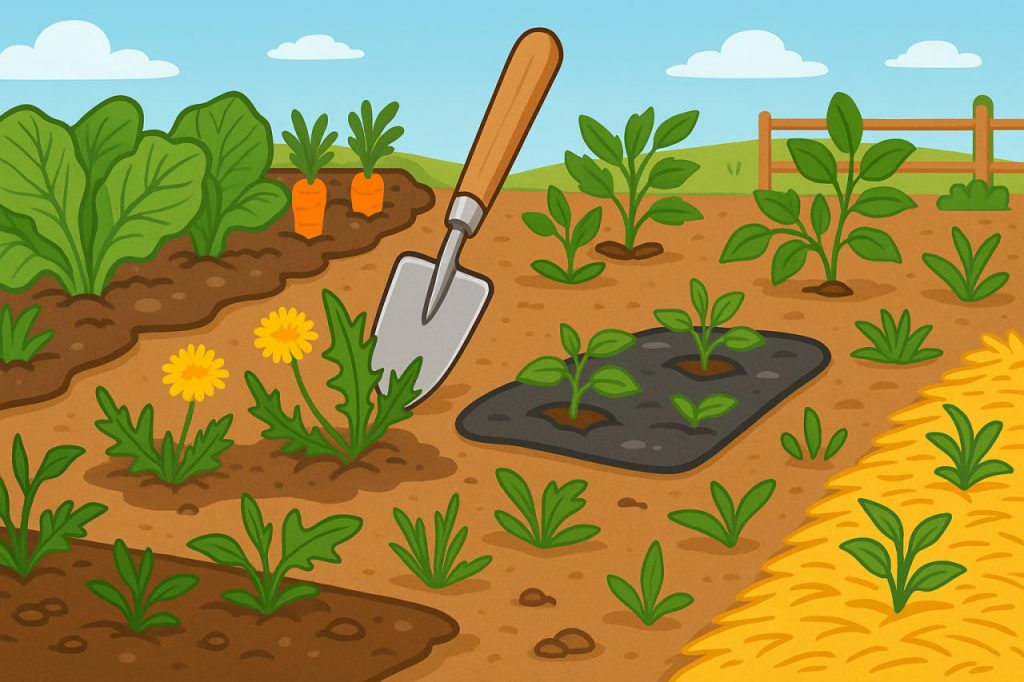Weeds are plants that grow where they are not wanted, often competing with cultivated crops, flowers, or lawns. They spread quickly, consume soil nutrients, block sunlight, and reduce agricultural yields. While some weeds have beneficial uses, most gardeners and farmers view them as a challenge that must be managed effectively.
Why Weeds Are a Problem
- Competition for resources – Weeds absorb water, nutrients, and sunlight, depriving crops and garden plants.
- Rapid reproduction – Many weeds produce thousands of seeds that spread easily by wind, animals, or water.
- Resistance – Weeds adapt quickly, sometimes becoming resistant to herbicides.
- Harbor pests and diseases – They provide shelter for insects and pathogens that harm crops.
Common Types of Weeds
- Annual weeds – grow, flower, and die within one season (e.g., chickweed).
- Perennial weeds – survive for years with deep roots (e.g., dandelion, bindweed).
- Invasive species – aggressive plants that spread quickly, often harming ecosystems (e.g., ragweed).
Ways to Control Weeds
- Manual removal – Pulling weeds by hand or digging them out, especially effective for small gardens.
- Mulching – Covering soil with straw, bark, or special film to block sunlight and prevent weeds from sprouting.
- Crop rotation – Changing planting patterns to disrupt weed life cycles.
- Ground cover plants – Planting dense vegetation that naturally suppresses weeds.
- Herbicides – Chemical solutions used with caution, mainly in large-scale farming. Overuse, however, can harm soil and health.
- Boiling water or vinegar – Natural household methods for spot-treating weeds without chemicals.
Preventive Measures
- Avoid letting weeds flower and set seeds.
- Regularly inspect and clean garden tools to prevent spreading seeds.
- Improve soil fertility to help cultivated plants outcompete weeds.
Conclusion
Weeds are persistent competitors in agriculture and gardening, but with proper management—manual, ecological, or chemical—they can be controlled. The most effective strategy is combining methods: prevention, regular care, and sustainable practices. This helps maintain healthy soil, strong crops, and balanced ecosystems.
Glossary
- Weeds – unwanted plants that compete with crops or garden plants.
- Perennial – a plant that lives for several years.
- Mulching – covering soil to prevent weeds and retain moisture.
- Invasive species – plants that spread aggressively, disrupting ecosystems.
- Herbicides – chemical substances used to destroy or control unwanted plants.


